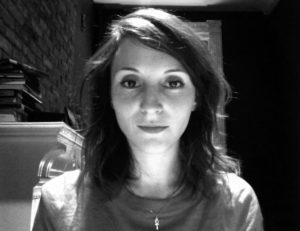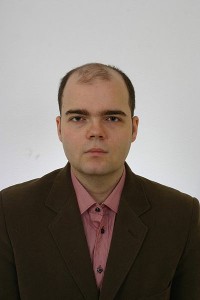Welcome to NeRDS
We are hiring!
NeRDS (the New Research on Digital Societies) group was established in 2013 at Kozminski University in Warsaw (Poland). Our aim is to study digital societies by the means of virtual ethnography, anthropology of the Internet, digital sociology, but also network analysis and other quantitative methods. Our projects so far include studies of open collaboration communities (such as Wikipedia), Couchsurfing, the Second Life, anti-vaccine discourse online, as well as virtual communities of museums. NeRDS are a proud member of the international Network of Centers. In 2017 our department changed its name, and now NeRDS have MINDS (Management in Networked and Digital Societies) department.
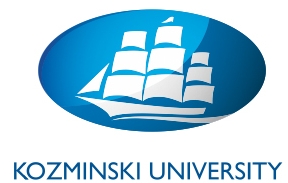
Our most recent publications in JCR-listed journals:
2021
- Khanh-Duy Le, Tanh Quang Tran, Karol Chlasta, Krzysztof Krejtz, Morten Fjeld, and Andreas Kunz. (2021). VXSlate: Exploring Combination of Head Movements and Mobile Touch for Large Virtual Display Interaction. In Designing Interactive Systems Conference 2021 (DIS ’21). Association for Computing Machinery, New York, NY, USA, 283–297. DOI:10.1145/3461778.3462076
- Khanh-Duy Le, Tanh Quang Tran, Karol Chlasta, Krzysztof Krejtz, Morten Fjeld, Andreas Kunz (2021). VXSlate: Combining Head Movement and Mobile Touch for Large Virtual Display Interaction. IEEE Conference on Virtual Reality and 3D User Interfaces, DOI: 10.1109/VRW52623.2021.00146
- Karol Chlasta, Krzysztof Wołk (2021). Towards computer-based automated screening of dementia through spontaneous speech. Frontiers in Psychology – Human Media Interaction, DOI:/10.3389/fpsyg.2020.623237
- Banasik-Jemielniak, Natalia, Jemielniak, Dariusz and Pędzich, Wojciech (2021) Do millions of prayers increase one’s longevity? A cohort study of the impact of intercessory prayers on the mortality of Roman Catholic bishops, Journal of Religion and Health, DOI:10.1007/s10943-021-01214-9
- Chrzanowski, Jędrzej, Sołek, Julia, Fendler, Wojciech and Jemielniak, Dariusz (2021) What drives the public interest during the pandemic? An analysis of 9 Wikipedias’ most visited medical articles during the SARS-CoV-2 outbreak, Journal of Medical Internet Research, DOI: 10.2196/26331
- Banasik-Jemielniak, Natalia, Jemielniak, Dariusz and Wilamowski, Maciej (2021) Psychology and Wikipedia: measuring psychology journals’ impact by Wikipedia citations, Social Science Computer Review, DOI: 1177/0894439321993836
- Stasik, Agata and Jemielniak, Dariusz (2021) Public involvement in risk governance in the internet era: impact of new rules of building trust and credibility, Journal of Risk Research, DOI: 1080/13669877.2020.1864008
2020
- Leon Ciechanowski, Dariusz Jemielniak, Peter Gloor (2020) AI research without coding: The art of fighting without fighting: Data science for qualitative researchers Journal of Business Research 117: 322-330
- Monika Sońta, Sławomir Magala (2020) What You Create Is What You Learn, International Journal of Management and Applied Research, Vol. 7, No. 3, pp. 293-307
- Helena Chmielewska-Szlajfer (2020) Academics Know Better (?): Scholars and Politics in Major Opinion Dailies During the 2015 Presidential Campaign in Poland, Critical Sociology, OnlineFirst, DOI: 10.1177/0896920520907962
- Agata Dembek (2020) Knitting an action net to reduce plastic waste: reusable takeout food containers in New York City, Culture and Organization, OnlineFirst, DOI: 10.1080/14759551.2020.1718147
- Robert Krimmer, David Duenas-Cid, Iuliia Krivonosova (2020) New methodology for calculating cost-efficiency of different ways of voting: is internet voting cheaper?, Public Money and Management, Online First, DOI: 10.1080/09540962.2020.1732027
- Robert Krimmer, David Duenas-Cid, Iuliia Krivonosova (2020) Debate: safeguarding democracy during pandemics. Social distancing, postal, or internet voting—the good, the bad or the ugly?, Public Money and Management, Online First, DOI: 10.1080/09540962.2020.1766222
2019
- Dariusz Jemielniak (2019) Wikipedia: Why is the common knowledge resource still neglected by academics?, GigaScience , 8(12): giz139
- Jérôme Hergueux, Dariusz Jemielniak (2019) Should digital files be considered a commons? Copyright infringement in the eyes of lawyers, The Information Society, 35(4): DOI: 10.1080/01972243.2019.1616019
- *Dariusz Jemielniak, Gwinyai Masukume, Maciej Wilamowski (2019) The Most Influential Medical Journals According to Wikipedia: Quantitative Analysis, Journal of Medical Internet Research 21:1. e11429.
- Olga Rodak (2019) Hashtag hijacking and crowdsourcing transparency: social media affordances and the governance of farm animal protection, Agriculture and Human Values, Online First, DOI: 10.1007/s10460-019-09984-5
2018
- *Marcin Miłkowski, Robert Clowes, Zuzanna Rucińska, Aleksandra Przegalińska. et al. (2018) From Wide Cognition to Mechanisms: A Silent Revolution, Frontiers in Psychology, DOI: 10.3389/fpsyg.2018.02393.
- *Dariusz Jemielniak, Agata Stasik, Aleksandra Przegalinska (2018) Anecdotal evidence: understanding organizational reality through organizational humorous tales, HUMOR: International Journal of Humor Research 31:3. 539-561.
- *Aleksandra Przegalinska, Leon Ciechanowski, Mikolaj Magnuski, Peter Gloor (2018) In the Shades of the Uncanny Valley: An Experimental Study of Human-Chatbot Interaction, Future Generation Computer Systems 92: 539-548.
- *Helena Chmielewska-Szlajfer (2018) Opinion dailies versus Facebook fan pages. The case of Poland’s surprising 2015 presidential elections, Media, Culture and Society, 40(6), 938-950, DOI: 10.1177/0163443718756065.
- 2017
- *Agata Stasik (2017) Global controversies in local settings: anti-fracking activism in the era of Web 2.0, Journal of Risk Research, DOI: 10.1080/13669877.2017.1313759.
- *Aleksandra Lis, Agata Kinga Stasik (2017) Hybrid forums, knowledge deficits and the multiple uncertainties of resource extraction: Negotiating the local governance of shale gas in Poland, Energy Research & Social Science 28 (2017) 29–36., DOI: 10.1016/j.erss.2017.04.003
- *Dariusz Jemielniak, Maciej Wilamowski (2017) Cultural Diversity of Quality of Information on Wikipedias, Journal of the Association for Information Science and Technology 68: 10. 2460–2470.
- Helena Chmielewska-Szlajfer (2017) “Authentic experience” and manufactured entertainment: Holy Land Experience religious theme park, Polish Sociological Review 4 (200): 545-558.
Our most recent international books:
- Dariusz Jemielniak (2020) Thick Big Data; Doing Digital Social Sciences, Oxford: Oxford University Press
- Dariusz Jemielniak and Aleksandra Przegalińska (2020) Collaborative Society, Cambridge, MA: MIT Press
- Helena Chmielewska-Szlajfer (2019) Reshaping Poland’s Community after Communism: Ordinary Celebrations, New York: Palgrave
- Aleksandra Przegalińska (2018) Wearable Technologies in Organizations: Privacy, Efficiency and Autonomy in Work, New York-London: Springer
-
Helena Chmielewska-Szlajfer (ed.) (2018) Marxism and Sociology: A Selection of Writings by Kazimierz Kelles-Krauz, Leiden, Netherlands: Brill
- Małgorzata Ciesielska, Dariusz Jemielniak (eds.) (2018) Qualitative Methodologies in Organization Studies Volume I: Theories and New Approaches, New York-London: Palgrave Macmillan
- Małgorzata Ciesielska, Dariusz Jemielniak (eds.) (2018) Qualitative Methodologies in Organization Studies Volume II: Methods and Possibilities, New York-London: Palgrave Macmillan
Check our other publications:
- 2018
- Agata Stasik, Ewa Wilczyńska (2018) How do we study crowdfunding? An overview of methods and introduction to new research agenda, Journal of Management and Business Administration. Central Europe 26 (2018) 49–78.
- 2017
- Helena Chmielewska-Szlajfer (2017) Gender equality in Central-Eastern Europe: Media between Communist heritage and Westernisation, Visegrad Insight 2 (11): 45-47.
- Rodak Olga, Karolina Mikołajewska-Zając (2017) ‘Paradigm Clash’ in the Digital Labor Literature: Reconciling Critical Theory and Interpretive Approach in Empirical Research, #SMSociety17: Proceedings of the 8th International Conference on Social Media & Society.
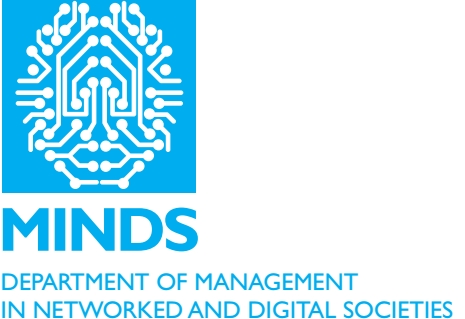
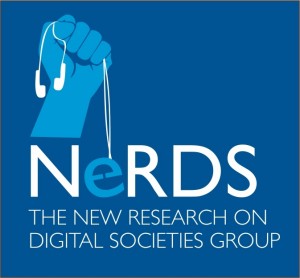
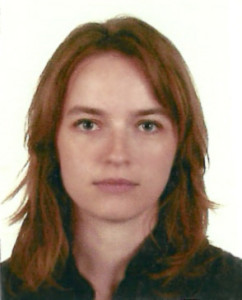
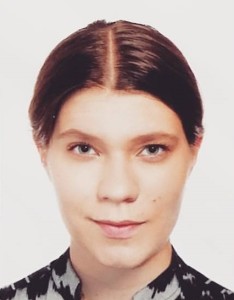
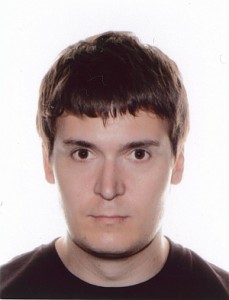 Dariusz Jemielniak is (full) professor of management at Kozminski University. His research interests include open collaboration movement (with a research project from National Science Center ongoing), and he has recently published a
Dariusz Jemielniak is (full) professor of management at Kozminski University. His research interests include open collaboration movement (with a research project from National Science Center ongoing), and he has recently published a  Paweł Krzyworzeka is assistant professor at Kozminski University. His research interests include studying the social networks in Eastern countries, such as vkontakte and odnoklassniki. You can contact him at
Paweł Krzyworzeka is assistant professor at Kozminski University. His research interests include studying the social networks in Eastern countries, such as vkontakte and odnoklassniki. You can contact him at 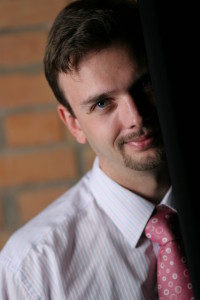 Grzegorz Mazurek is an associate professor of marketing and specializes in the new technologies impact on management and marketing. He has authored three books. Before pursuing a scientific career, Grzegorz Mazurek held the position of Manager at K2 Internet S.A. – one of the most well-known interactive agencies in Poland. He had been working in the field of internet marketing for more than 12 years, managing projects for such brands as: Nokia, Nikon, Mars Corp., Michelin, IKEA and Senate of the Republic of Poland. You can contact .him at
Grzegorz Mazurek is an associate professor of marketing and specializes in the new technologies impact on management and marketing. He has authored three books. Before pursuing a scientific career, Grzegorz Mazurek held the position of Manager at K2 Internet S.A. – one of the most well-known interactive agencies in Poland. He had been working in the field of internet marketing for more than 12 years, managing projects for such brands as: Nokia, Nikon, Mars Corp., Michelin, IKEA and Senate of the Republic of Poland. You can contact .him at 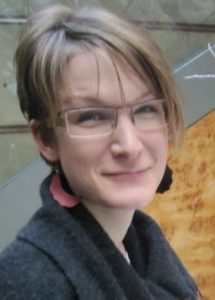

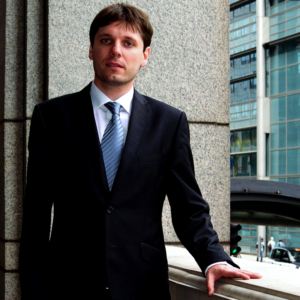
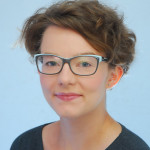


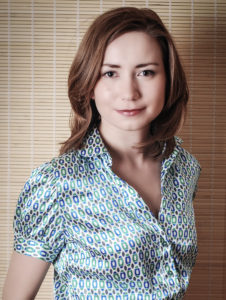
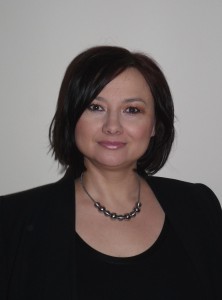 Jolanta Tkaczyk is assistant professor of marketing at Kozminski University. Her research interests include consumer behaviour with particular emphasis on word of mouth and social media (with a research project from National Science Center ongoing). You can contact her by email
Jolanta Tkaczyk is assistant professor of marketing at Kozminski University. Her research interests include consumer behaviour with particular emphasis on word of mouth and social media (with a research project from National Science Center ongoing). You can contact her by email 